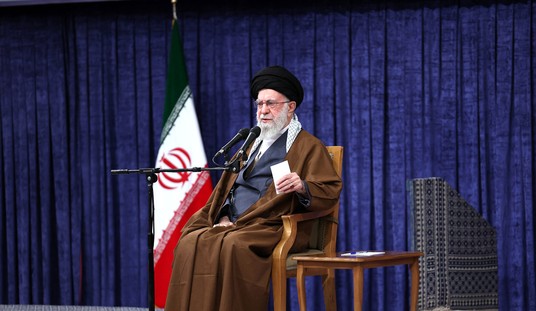According to a new investigative Associated Press article, President Barack Obama was informed of the close ties between Iran’s Islamist regime and al-Qaeda one year ago. Many of the terrorist group’s top leaders had taken refuge in Iran after the United States drove them out of Afghanistan in 2003, but only recently had the Iranians given them more freedom to operate in the country.
Six weeks ago, General David Petraeus — head of the U.S. Central Command and one of the most respected men in the United States — publicly revealed this information about the al-Qaeda links with Iran.
Iran, he said in congressional testimony, provides “a key facilitation hub, where facilitators connect al-Qaeda’s senior leadership to regional affiliates.” In other words, Tehran is letting al-Qaeda leaders travel freely back and forth to Pakistan and Afghanistan using its territory as a safe haven. The regime is allowing them to plan terrorist attacks aimed against U.S. targets. He also discussed Iranian help given to the Afghan Taliban and Shia Iraqi militia groups for a similar purpose.
Yet neither the White House nor the top levels of the State or Defense Departments repeated these charges or used them in building a campaign against Iran’s nuclear drive.
The plan to construct some apartments in Jerusalem became a major crisis in U.S. policy, with charges that by doing so Israel was endangering U.S. interests and even the lives of soldiers. Yet confirmed U.S. intelligence that Iran’s leadership is cooperating with al-Qaeda, Iraqi militias, and Afghan Islamists to kill Americans evoked no response at all. Remember, al-Qaeda has carried out many attacks on the United States and its citizens, most notably the September 11, 2001, assault on New York and Washington, D.C. Al-Qaeda is the only group in the world with which the United States considers itself to be at war. Knowing that Iran is giving aid and comfort to al-Qaeda is a pretty significant fact — a game-changer.
The AP story points out that most of al-Qaeda’s leadership is now in Iran, effectively under the protection of that Islamist regime. Under the Bush administration, intelligence officials explored the possibility of sending in hit squads to kill them but decided this was not possible. The Obama administration disbanded the project.
Iran’s immediate motive is to use al-Qaeda as a tool to hit the United States in order to discourage the U.S. government from pressuring Iran over the nuclear weapons effort or other issues. The al-Qaeda leaders are thus free to meet, travel to and from other countries, and do the various things required in order to run the group, raise funds, and plan attacks.
Nominally, these terrorists are under house arrest, but this seems to be largely a fiction — and anyway, does not stop them from going about their (terrorist) business. One can safely assume that their ranks are infiltrated by Iranian agents and all their communications monitored. Thus, by enabling and knowing about al-Qaeda’s terrorism plans, the Iranian government becomes complicit in them.
One would expect that the Obama administration would be horrified by this situation. It is simple logic: if al-Qaeda is at war with America, and America is at war with al-Qaeda, and Iran is allied with al-Qaeda, then …
It would be appropriate for U.S. leaders to mobilize support both internationally and among their own people by making clear this fact. The problem, however, is that to do so would require some action on the part of Washington. This would not necessarily entail military action against Iran, but certainly covert operations against its agents and clients, along with a full commitment to a long-term struggle with the Islamist regime.
Moreover, to acknowledge that Iran is essentially Osama bin Laden’s best friend as a regime — along with Iran’s waging war on the United States in Iraq, Afghanistan, and elsewhere — the current U.S. government would have to toss away any hope that engaging Iran or even putting on limited pressure is going to persuade the Islamist regime to become moderate.
Another question that arises here is how the U.S. government would respond in the case of a future terrorist attack against U.S. territory or American citizens in which Iran was involved, if only as safe haven and facilitator. Such attacks have almost certainly happened before — the 1996 attack on Khobar Towers in Saudi Arabia which killed 19 American soldiers being the most obvious example.
In effect, though on a smaller scale, Iran has taken over the role of al-Qaeda’s host and protector from the now-defunct Taliban regime in Afghanistan. If this doesn’t require a strong and clear-cut policy response by the United States, what does?









Join the conversation as a VIP Member